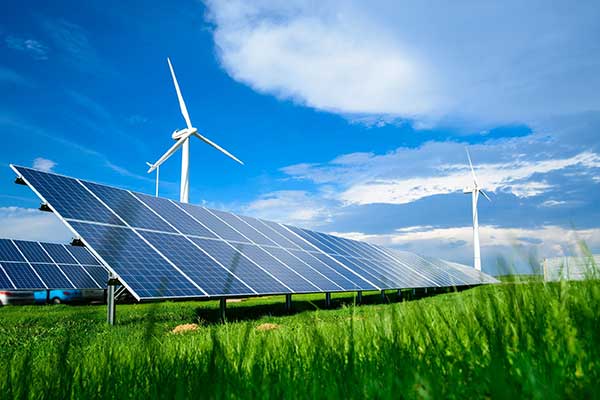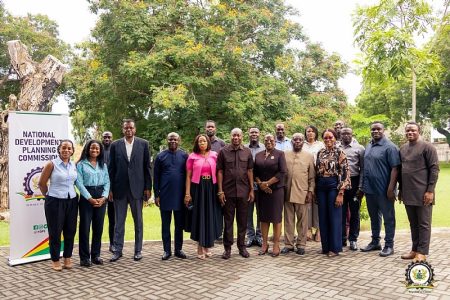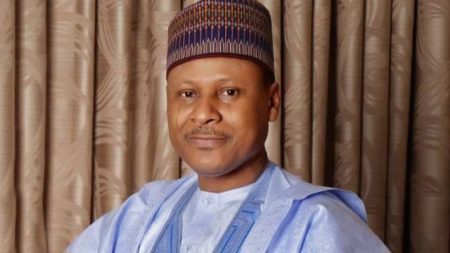Paragraph 1: A New Dawn for Nigeria’s Energy Landscape
Nigeria, a nation grappling with the dual challenge of meeting its growing energy demands and mitigating the impacts of climate change, has embarked on a transformative journey towards sustainable energy development. This journey has received a significant boost through a €20 million grant and project agreement signed with the German government. This partnership signals a commitment to fostering a climate-friendly energy future for Nigeria, leveraging renewable energy sources to power economic growth and improve the lives of its citizens. The agreement, facilitated through the KfW Development Bank and the Africa Enterprise Challenge Fund, marks a crucial step in Nigeria’s transition towards a cleaner and more resilient energy system.
Paragraph 2: Strategic Objectives for Sustainable Energy Development
The collaborative project between Nigeria and Germany outlines three core objectives aimed at reshaping the country’s energy landscape. Firstly, the initiative seeks to promote the widespread adoption of renewable energy technologies and practices, driving improvements in energy efficiency across various sectors. This includes supporting the deployment of solar, wind, and other renewable energy sources to reduce dependence on fossil fuels. Secondly, the project aims to expand vocational training programs focused on renewable energy technologies and energy asset management. By equipping individuals with the necessary skills and knowledge, the program seeks to create a skilled workforce capable of driving the growth and maintenance of Nigeria’s burgeoning renewable energy sector. Thirdly, the project aims to significantly reduce Nigeria’s reliance on fossil fuels, a key contributor to greenhouse gas emissions and air pollution. This transition will not only mitigate climate change impacts but also enhance energy security and reduce the nation’s vulnerability to volatile global oil prices.
Paragraph 3: Empowering Communities and Driving Economic Growth
The collaborative energy project is poised to deliver significant socio-economic benefits to Nigeria. By enhancing energy access in underserved communities, the initiative will improve living standards, empower businesses, and create new opportunities for education and healthcare. The project’s focus on vocational training in renewable energy will also generate employment opportunities, particularly for youth and women, empowering them to contribute to the nation’s sustainable development. This targeted skill development will foster entrepreneurship and innovation in the renewable energy sector, driving economic diversification and creating a more resilient and inclusive economy.
Paragraph 4: Synergy and Collaboration for Sustainable Impact
Recognizing the importance of coordinated efforts, the Nigerian government has emphasized the need for synergy among various development programs, including the African Enterprise Development Fund, to maximize the impact of sustainable energy initiatives. This collaborative approach aims to avoid duplication of efforts and ensure that resources are effectively utilized to support renewable energy projects across various sectors, such as health and education. By integrating sustainable energy solutions into these critical sectors, the project seeks to create a holistic and interconnected approach to development, maximizing the benefits for communities across Nigeria.
Paragraph 5: A Milestone in German-Nigerian Cooperation
The signing of the €20 million agreement represents a significant milestone in the longstanding development cooperation between Germany and Nigeria. Coinciding with the 50th anniversary of Germany’s Energy Transition Challenge Fund, the agreement underscores the country’s commitment to supporting Nigeria’s energy transition journey. The fund’s focus on financing high-impact renewable energy projects further strengthens the financial partnership between the two nations, demonstrating Germany’s dedication to supporting impactful and sustainable development initiatives in Nigeria.
Paragraph 6: Charting a Path Towards a Sustainable Energy Future
The collaborative project between Nigeria and Germany heralds a new era of sustainable energy development in Nigeria. Through strategic investments in renewable energy technologies, vocational training, and capacity building, the initiative is poised to transform the nation’s energy landscape. By promoting energy access, empowering communities, and fostering a skilled workforce, the project will contribute significantly to Nigeria’s sustainable development goals. This partnership serves as a shining example of international cooperation, demonstrating the power of collaborative action in addressing global challenges and building a more sustainable future.














